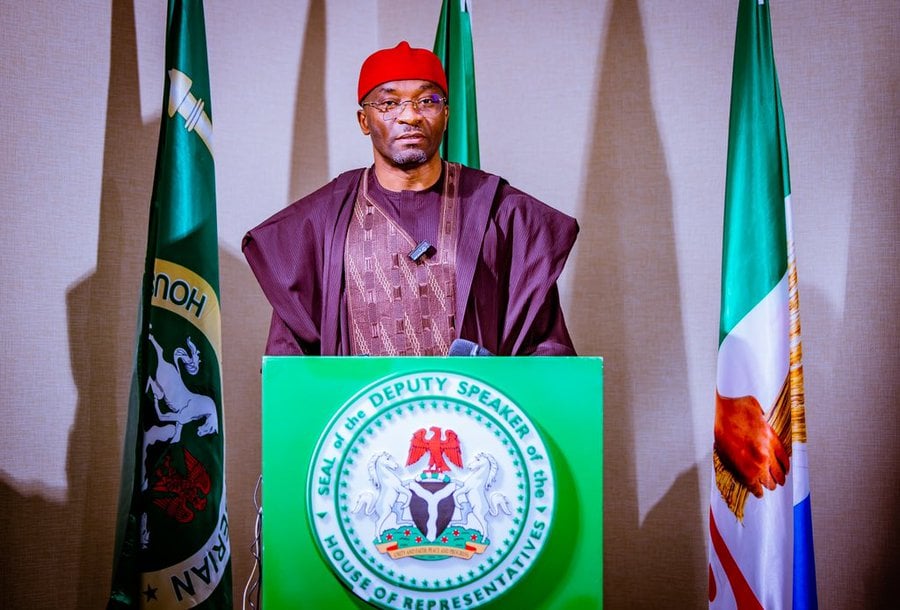The South East Development Commission (SEDC), established to address the lingering consequences of the Nigerian Civil War and foster development in the region, faces a critical hurdle: the release of appropriated funds. Despite bipartisan legislative support and presidential assent in 2023, the commission remains financially hamstrung, hindering its mandate of Reconstruction, Reintegration, and Reconciliation. Deputy Speaker Benjamin Kalu confirmed this funding delay, attributing it to a broader governmental issue affecting fund disbursement. He assured that the commission would receive its allocation in the near future, enabling it to commence its crucial work. The delay highlights the challenges inherent in translating legislative victories into tangible on-the-ground impact, and underscores the need for efficient budgetary processes to ensure timely implementation of vital national development initiatives.
The SEDC’s mission is deeply rooted in the historical context of the Nigerian Civil War, a conflict whose aftermath continues to shape the socio-economic landscape of the South East. The commission’s three-pronged approach – Reconstruction, Reintegration, and Reconciliation – aims to address the lingering effects of the war, including infrastructural deficits, societal divisions, and unresolved grievances. The failure to effectively address these issues in the decades following the conflict has contributed to a sense of marginalization and resentment in the region. The SEDC, therefore, represents a critical opportunity to heal old wounds, bridge divides, and foster a more inclusive and prosperous future for the South East.
The deputy speaker stressed the importance of implementing the “three Rs” to mitigate the lingering bitterness and sense of marginalization in the region. He argued that unaddressed historical grievances have fueled discontent, making the SEDC’s work essential for fostering lasting peace and reconciliation. The commission’s mandate extends beyond physical reconstruction to encompass social and economic rehabilitation, acknowledging the interconnectedness of these aspects in achieving genuine and sustainable development. By focusing on economic empowerment, infrastructural development, and reconciliation initiatives, the SEDC aims to create a more equitable and integrated South East, contributing to national unity and stability.
The SEDC’s operational framework includes a focus on key sectors essential for regional development, including agriculture, power, infrastructure, technology, and commerce. By investing in these areas, the commission aims to stimulate economic growth, create job opportunities, and improve the overall quality of life for people in the South East. Addressing insecurity through economic empowerment is another key element of the SEDC’s strategy, recognizing the link between poverty and instability. By providing opportunities for economic advancement, the commission hopes to reduce the appeal of criminal activities and promote a more secure and peaceful environment.
Complementing the SEDC’s efforts is the South East Investment Company (SEIC), also approved by President Tinubu. The SEIC aims to attract diaspora investments and private equity funding to further bolster the region’s rebuilding efforts. This dual approach, combining government funding through the SEDC with private investment facilitated by the SEIC, underscores a commitment to leveraging multiple resources for comprehensive development. The success of this strategy will hinge on building investor confidence and ensuring transparency and accountability in the management of both the SEDC and SEIC.
Despite the optimism surrounding the establishment of the SEDC, concerns have been raised about the potential for mismanagement of allocated funds. The Indigenous People of Biafra (IPOB) has cautioned against the politicization of the commission’s resources, emphasizing the need for transparency and accountability in their utilization. The ₦250 billion appropriated for the SEDC represents a significant investment, and its effective management is critical to achieving the commission’s objectives. Ensuring that these funds are used solely for their intended purpose – the development of the South East – will be essential to building public trust and demonstrating the government’s commitment to the region’s well-being. Beyond the financial aspects, the successful implementation of the SEDC’s mandate will require ongoing dialogue, collaboration, and community engagement to ensure that its initiatives are responsive to the needs and aspirations of the people of the South East.
Beyond discussions about the SEDC, Deputy Speaker Kalu also expressed his strong support for state policing during the same television interview, stating that “the time is right for it in Nigeria.” He reiterated his endorsement of the proposal, emphasizing that Nigeria is ready for such a decentralized security approach. While acknowledging the need for constitutional amendments to enable state policing, his stance reflects a growing national conversation around reforming Nigeria’s security architecture to better address localized security challenges. The debate regarding state policing underscores the ongoing search for effective security solutions in a complex and dynamic environment.














